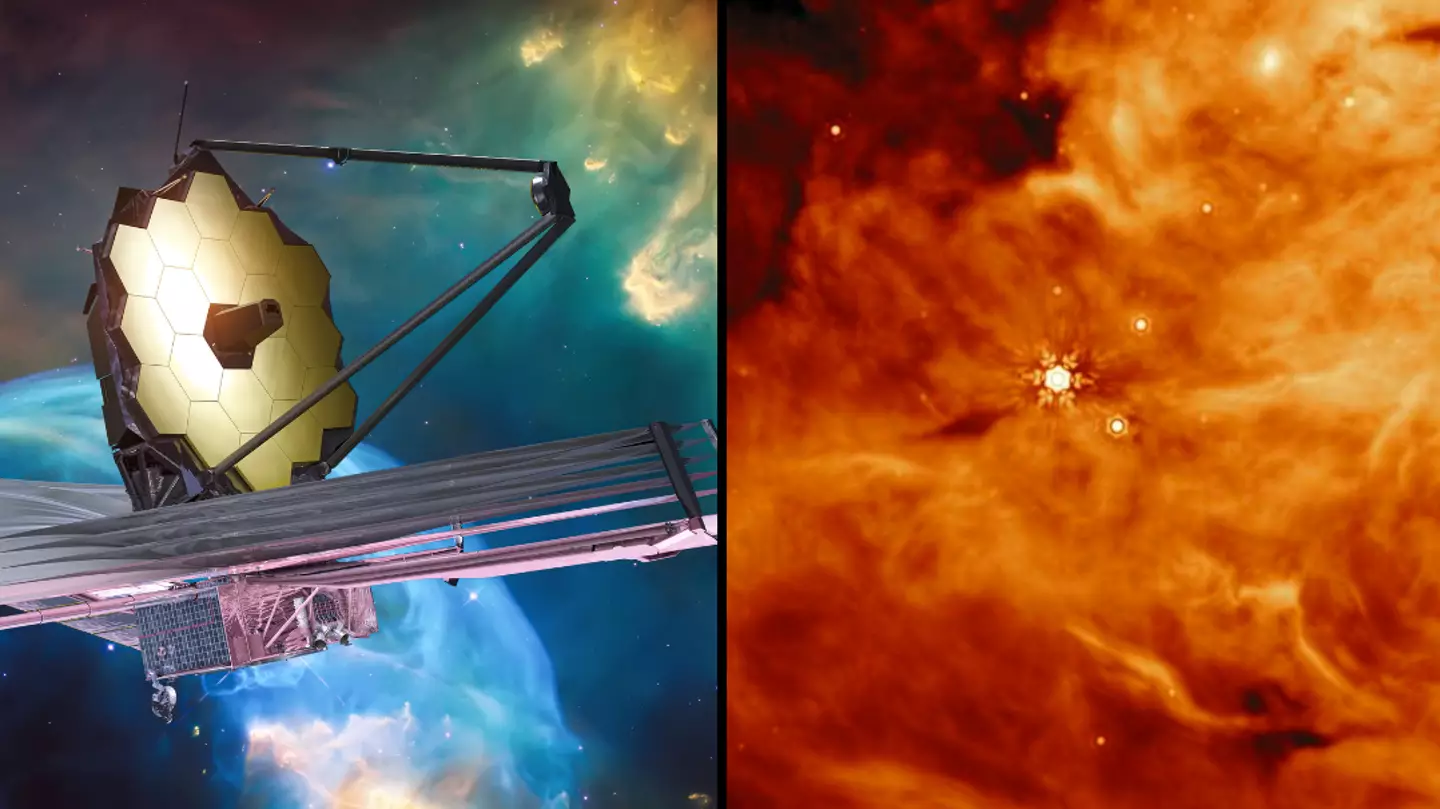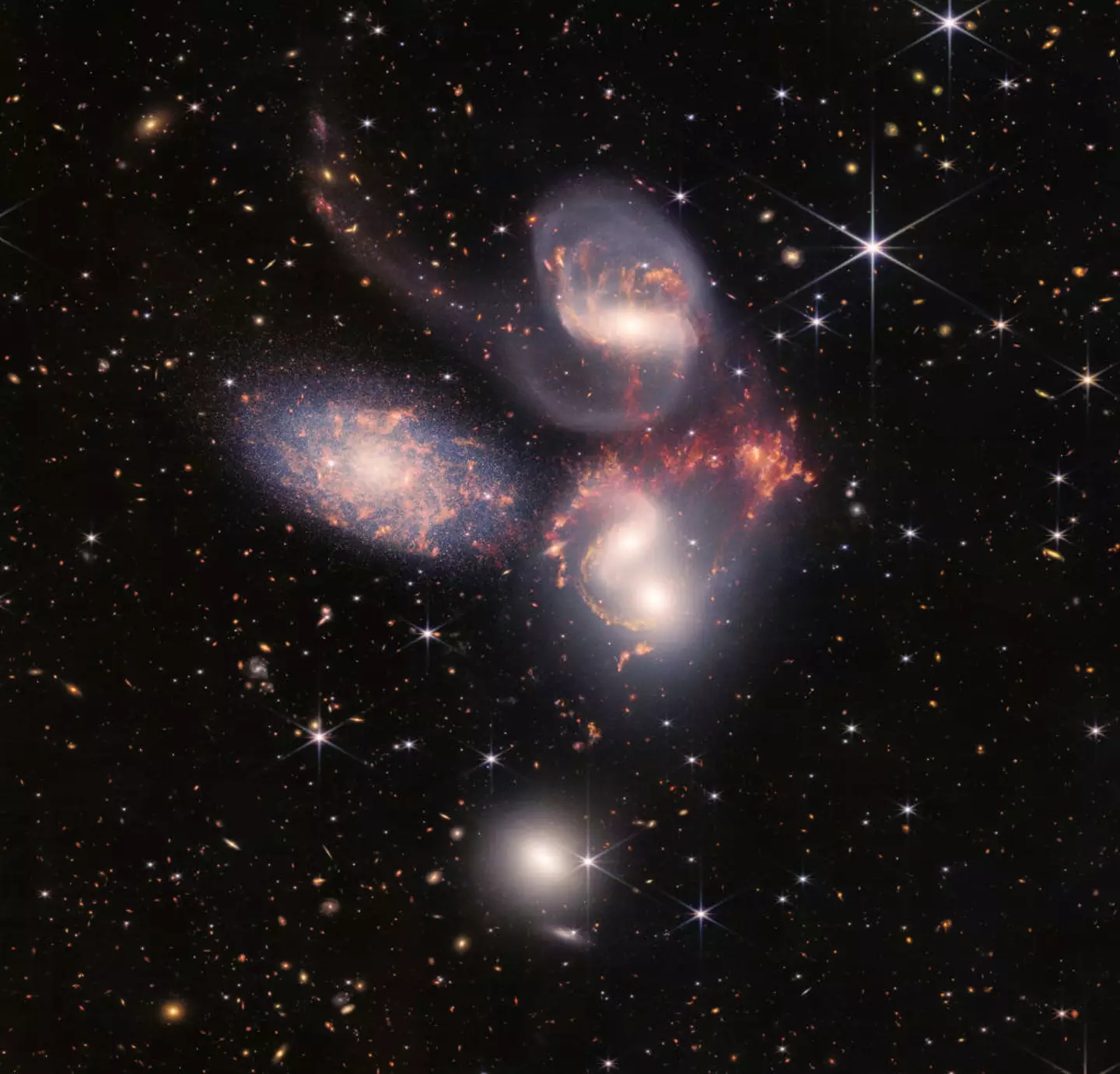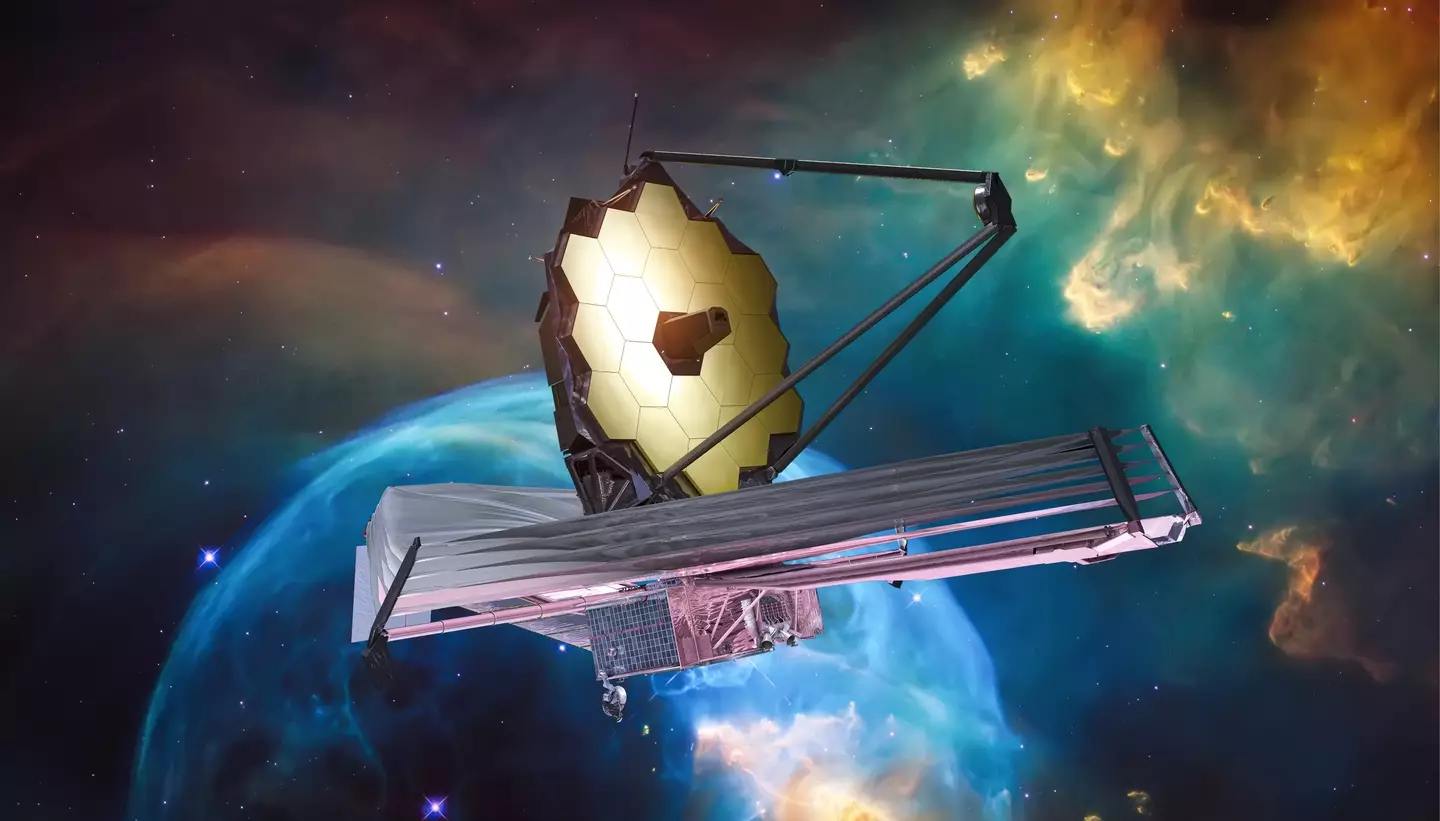
Humanity's obsession with space goes back decades, with the first person sent into the unknown all the way back in 1961.
The Soviet Union's Yuri Gagarin was the first man blasted off of the planet as the Cold War heated up between the USSR and United States. It culminated in the 1969 Moon Landing, with Neil Armstrong's famous words going down in history.
To this day, we're continuing to discover new things about the cosmos through extremely advanced technology. Just look at NASA's latest findings using the James Webb Space Telescope (JWST) - which have left people with raised eyebrows to say the least.
Advert
The JWST was launched in to space just under three years ago, in December 2021, serving as the natural technological successor to the famous Hubble Space Telescope that's been sending images back to Earth ever since it left the planet in 1990.
Advanced tech on the JWST means that it can view a whole load more than Hubble, with it even able to see light from right after the the Big Bang and the first stars and galaxies as they formed across the universe.
It's also behind recent discoveries that have left scientists wondering if they've got something 'seriously wrong' about the universe.

But one of the more recent findings from JWST imagery has left scientists raising a toast to the very beginning of our Milky Way solar system.
In a statement not expected by the likes of NASA, the space agency says: "What do margaritas, vinegar, and ant stings have in common?"
Well the answer is known thanks to the JWST, which is currently observing something called protostars; these are stars that are yet to properly form but almost certainly will, according to NASA.
NASA says it has detected 'key ingredients for making potentially habitable worlds' when observing the protostars.
The key ingredients? Ethanol, which we use to make booze. There's also acetic acid, one of the key ingredients in vinegar. There's also methane, formaldehyde, and sulfur dioxide, which NASA say all 'played an important role in driving metabolic reactions on the primitive Earth'.

All have been identified in what NASA calls 'icy compounds' forming these stars.
“This finding contributes to one of the long-standing questions in astrochemistry,” said team leader Will Rocha of Leiden University in the Netherlands.
“What is the origin of complex organic molecules, or COMs, in space? Are they made in the gas phase or in ices? The detection of COMs in ices suggests that solid-phase chemical reactions on the surfaces of cold dust grains can build complex kinds of molecules.”
Ewine van Dishoeck of Leiden University, one of the coordinators of the science program, said: "All of these molecules can become part of comets and asteroids and eventually new planetary systems when the icy material is transported inward to the planet-forming disk as the protostellar system evolves.
"We look forward to following this astrochemical trail step-by-step with more Webb data in the coming years."
Topics: NASA, Science, Space, Technology, US News, World News, James Webb Space Telescope